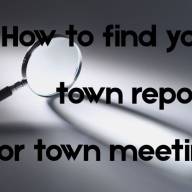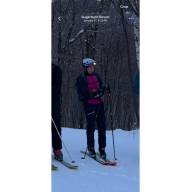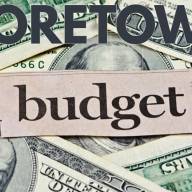By members of the Mad River Valley Bear Initiative
The Mad River Valley is home to a healthy, natural and wild black bear population. Unfortunately, black bears are sometimes attracted to human food sources such as trash, compost, barbecue grills and bird feeders. Yet the bears don’t know they’re doing anything wrong! =They’re just following their noses to the most and easiest calories they can find. Bears that do find food around homes and communities can start to build bad habits and become regular unwanted customers. They start to lose their natural wariness of people, which can lead to them causing damage to property, vehicles and even homes. This ends up not being good for the bears as a habituated bear often needs to be relocated or killed.
The Mad River Valley Black Bear Initiative will be publishing several articles over the coming months with some advice on how we, as a community, can be proactive and responsible stewards of our MRV black bears. This first article tackles the subject of:
BIRD FEEDERS
Many of us in the Mad River Valley eagerly put out bird feeders late in the fall hoping to attract a multitude of feathered visitors over the winter. It is a joy to watch the chickadees, nuthatches, woodpeckers, finches and more, busily flying back and forth on a cold, snowy day.
However, there is one visitor to our feeders we don’t want! Black bears have a keen sense of smell and are readily attracted to our backyards by a multitude of odors and being able to access food easily is a big attractant. The bird food we put out (sunflower seeds and suet especially) is high in protein and fat and bears see this as a high calorie and easy food source. This readily accessible food acts as a “reward” for the bears and they will often come back for repeat visits.
And yes! Bears are attracted to your yard by hummingbird feeders too. If you love watching the frenetic activity and spectacular plumage of ruby-throated hummingbirds, chances are you will be putting out a feeder over the summer. Imagine what a reward it is for a black bear to find a glass of sugar water on a nocturnal ramble. And to then find the glass refilled with the sweet treat on the next night’s visit!
What Can You Do To Be More Black Bear Aware?
- Do not put your bird feeders up until December 1.
- The exact dates that bears enter their dens can vary greatly depending on availability of natural food, snow cover and temperature.
- As a general rule, plan to take down your feeders by April 1.
- As in the fall, the date that bears emerge from their dens in the spring varies depending on food availability, weather severity and the presence/absence of cubs.
- Don’t worry! Birds will easily find natural food sources such as seeds, berries and insects.
- If we get a late season cold snap or snow storm, you can always put your feeders back out for just a couple of days.
- If possible, try to keep the area below your bird feeders as clean as possible.
- Birds are messy eaters and end up spilling a lot of seeds onto the ground. Keeping seed build up to a minimum will help prevent unwanted visitors.
- Don’t store bird food on your porch, in your entryway or in a shed that is not bear proof.
- Bears are very intelligent and will work hard to get a good food reward.
- One 7-pound bag of bird seed contains 12,180 calories!
- Please consider moving your hummingbird feeders and your bird feeders inside every night to stop the bears from getting used to these easy treats.
- This won’t stop the bears from visiting in the daytime, but it will help with those unwanted night visits.
- If you do get a bear visiting your feeders, keep the feeders inside for several days before putting them outside again.
- Visit https://www.audubon.org/PLANTSFORBIRDS to learn more about planting flowers and shrubs that will attract hummingbirds and other birds to your yard and garden.
- Learn more about bears and living with bears on the VT State Fish & Wildlife website: https://vtfishandwildlife.com/learn-more/vermont-critters/mammals/black-bear and https://vtfishandwildlife.com/node/256
- The VT Agency of Natural Resources also provides guidance on bird feeders in our region. https://anr.vermont.gov/node/1140
- Register for upcoming presentations on bears!
Habitat Improvements for Vermont’s Black Bears: Steps to make your woodlot and your backyard bear friendly. Hosted by Vermont Coverts.
Thursday, April 7, noon-1 p.m. https://vtcoverts.org/calendar.html
Bears and Birds Webinar: Attract backyard birds, not bears, through Audubon’s Native Plants for Birds program. Hosted by Vermont Audubon.
Wednesday, April 13, noon-1 p.m. https://vt.audubon.org/events/bears-and-birds-webinar
Bear with Us: Living with Black Bears in the North Country: A virtual presentation with Sue Morse of Keeping Track. Hosted in partnership with Northeast Wilderness Trust and the MRV Black Bear Initiative. Tuesday, May 10, 5:30 p.m. - stay tuned for more info.











